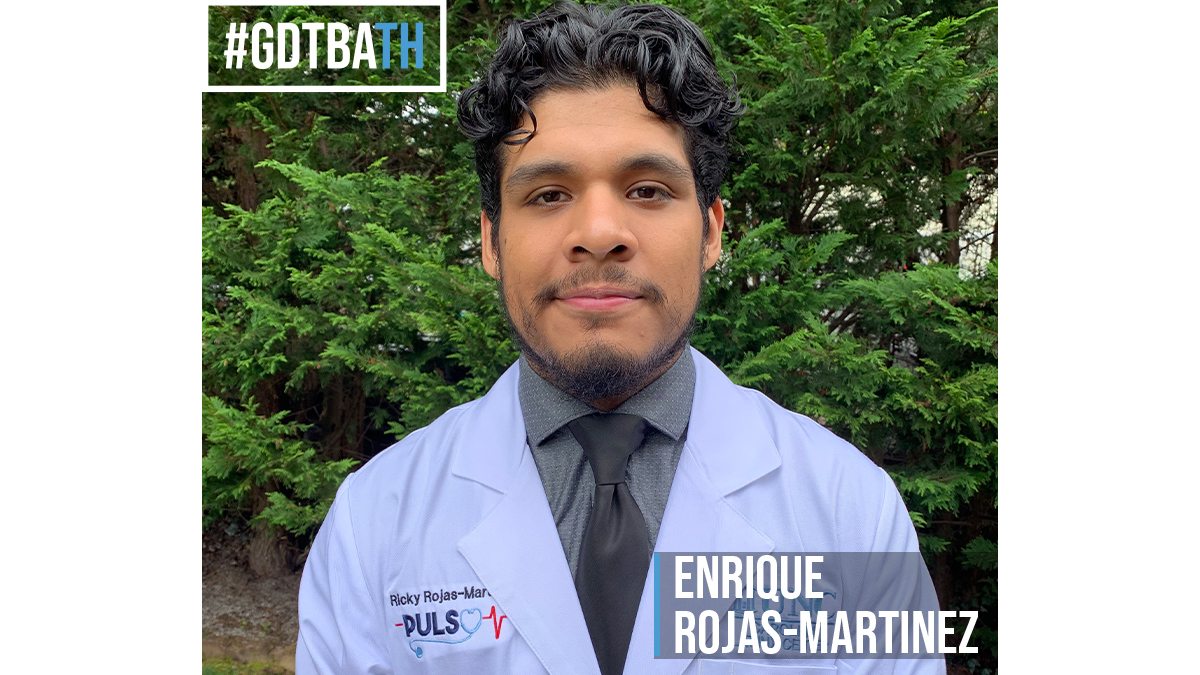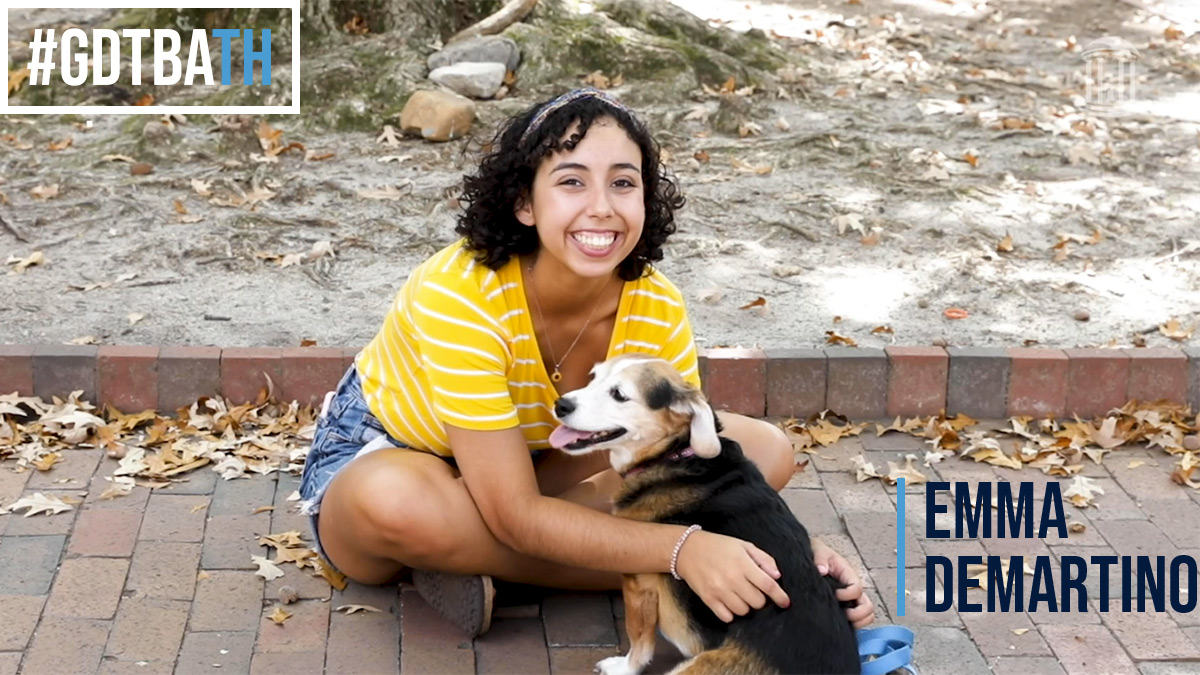#GDTBATH: Enrique Rojas-Martinez
When sophomore Enrique Rojas-Martinez joined the second cohort of the Carolina Latinx Center's Pulso Scholars this fall, he gained a support and mentorship network that will help him navigate the difficult path of becoming a doctor.

Ever since he was 6 years old, Enrique Rojas-Martinez knew he wanted to be a doctor, and he’s spent the past 13 years working toward that dream through internships and jobs as a certified nursing assistant.
Even his first job — a janitor in the hospital where he was born in Asheville, North Carolina — was designed to get him closer to the action.
“I got to go everywhere — to the pediatric units, to some of the surgery units,” he said. “Even if it was just for cleaning, it was nice to get that experience and see how the environment is.”
Not only did those experiences prepare him for a future career, but they also opened his eyes to a valuable lesson of being a doctor: you don’t succeed alone.
“It isn’t just the doctor, but the whole team around them,” he said. “It’s the doctor plus the nurse plus everyone else who’s working there. … We’re always better as a team.”
Now a Carolina sophomore studying biology and medical anthropology, Rojas-Martinez is putting that lesson into practice by joining a new team that will help him become a doctor. This fall, he became a member of the second cohort of the Pulso Scholars, a pipeline program through the Carolina Latinx Center designed to promote academic and professional success among minority Carolina students interested in medical school and other health professions.
The program hosts workshops, seminars, networking events and hands-on learning opportunities to provide academic, professional and cultural development.
Rojas-Martinez was initially drawn to the Pulso Scholars because it reminded him of the Mountain Area Health Education Center’s Minority Medical Mentoring Program that he joined in high school. The program, he said, solidified his childhood goal and built his confidence that it was attainable.
“In this program, we got to shadow doctors from all different disciplines — whether it be family medicine or surgery or clinics — and see the environment that they were in and how it was,” he said. “I really enjoyed my internship. Being in that setting doesn’t make me uncomfortable. It makes me feel like I belong there. It’s something that I really want to do.”
Rojas-Martinez views the Pulso Scholars as the next opportunity to explore new aspects of the health sciences and also gain a crucial support and mentorship network as he navigates the difficult path of becoming a doctor.
“There are plenty of other students in the same spot as you,” he said. “Being able to have that support group to talk about classes, how things are going and being able to have those people to talk and to relate to you is really important.”
That support, Rojas-Martinez said, will be valuable for him and his fellow cohort members as they need to not only excel in their coursework to enter careers in the health sciences but also defy stereotypes.
“For minorities, we definitely have the stereotypes,” he said. “When people think Hispanic, you think people working blue-collar jobs. They don’t think doctor. They don’t think lawyer. We’re not held in the same regard.”
Although all of the Pulso Scholars programs are currently being held remotely because of the COVID-19 pandemic, Rojas-Martinez said the cohort is already connecting and learning from each other — providing the Tar Heel with the team he can turn to for support.
“I can’t imagine myself doing anything else,” he said. “From a cultural perspective, I hold my doctor to a really high regard, and he is part of my family in a way. Being able to have that kind of relationship with parents in the future is something that drives me.”




